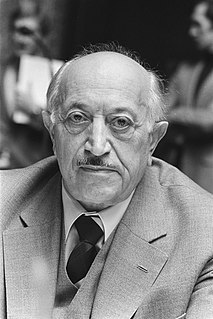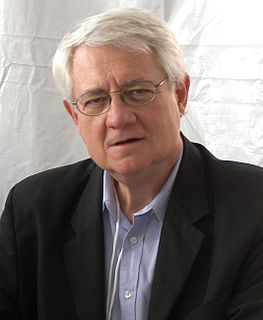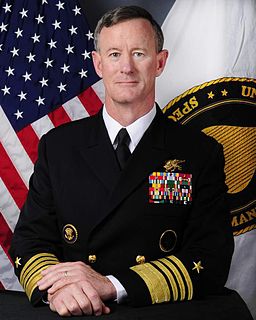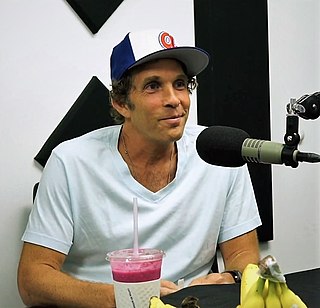A Quote by Paul Auster
Impossible, I realize, to enter another’s solitude. If it is true that we can ever come to know another human being, even to a small degree, it is only to the extent that he is willing to make himself known. A man will say: I am cold. Or else he will say nothing, and we will see him shivering. Either way, we will know that he is cold. But what of the man who says nothing and does not shiver? Where all is intractable, here all is hermetic and evasive, one can do no more than observe. But whether one can make sense of what he observes is another matter entirely
Related Quotes
If a person is cold and rigid, he feels within himself as if he were in a grave. He is not living, he cannot enjoy this life for he cannot express himself and he cannot see the light and life outside. What keeps man from developing the heart quality? His exacting attitude. He wants to make a business of love. He says, 'If you will love me, I will love you.' As soon as a man measures and weighs his favors and his services and all that he does for one whom he loves, he ceases to know what love is. Love sees the beloved and nothing else.
You're a religious man, ... You believe in God and life after death. I also believe. When we come to the other world and meet the millions of Jews who died in the camps and they ask us, 'What have you done?' there will be many answers. You will say, 'I became a jeweler.' Another will say, 'I smuggled coffee and American cigarettes.' Another will say, 'I built houses.' But I will say, 'I didn't forget you.'
Solitude is the profoundest fact of the human condition. Man is the only being who knows he is alone, and the only one who seeks out another. His nature - if that word can be used in reference to man, who has ‘invented’ himself by saying ‘no’ to nature - consists in his longing to realize himself in another. Man is nostalgia and a search for communion. Therefore, when he is aware of himself he is aware of his lack of another, that is, of his solitude.
A man that hath no virtue in himself, ever envieth virtue in others. For men's minds, will either feed upon their own good, or upon others' evil; and who wanteth the one, will prey upon the other; and whoso is out of hope, to attain to another's virtue, will seek to come at even hand, by depressing another's fortune.
Be careful how you do one man a pleasure which must needs occasion equal displeasure in another. For he who is thus slighted will not forget, but will think the offence to himself the greater in that another profits by it; while he who receives the pleasure will either not remember it, or will consider the favour done him less than it really was.
A dog will make eye contact. A cat will, too, but a cat's eyes don't even look entirely warm-blooded to me, whereas a dog's eyes look human except less guarded. A dog will look at you as if to say, "What do you want me to do for you? I'll do anything for you." Whether a dog can in fact, do anything for you if you don't have sheep (I never have) is another matter. The dog is willing.
The Christian will be sure to make enemies. It will be one of his objects to make none; but if doing what is right and believing what is true should cause him to lose every earthly friend, he will regard it as a small loss, since his great Friend in heaven will be even more friendly and will reveal Himself to him more graciously than ever.
All who say the same things do not possess them in the same manner; and hence the incomparable author of the Art of Conversation pauses with so much care to make it understood that we must not judge of the capacity of a man by the excellence of a happy remark that we heard him make. Let us penetrate, says he, the mind from which it proceeds. It will oftenest be seen that he will be made to disavow it on the spot, and will be drawn very far from this better thought in which he does not believe, to plunge himself into another, quite base and ridiculous.
If you make your bed every morning you will have accomplished the first task of the day. It will give you a small sense of pride and it will encourage you to do another task and another and another. .?.?. And, if by chance you have a miserable day, you will come home to a bed that is made - that you made - and a made bed gives you encouragement that tomorrow will be better.
Surrender your will to Him. Unconditionally. Withhold nothing. Turn it all over to Him; all of your desires, wishes, dreams and hopes. Trust in Him. Trust Him who knows all things. Trust Him who has all power. Trust Him whose love for you is perfect. Trust Him, who alone suffered, paid, and atoned for you sins, and for your weaknesses as well. Trust Him that He will make of you immeasurably more than what you will ever, ever, in all eternity make of yourself. He will create of you a masterpiece. You will create of you only a smudge. You will create an ordinary man. He will create a God.
If one does not make human knowledge wholly dependent upon the original self-knowledge and consequent revelation of God to man, then man will have to seek knowledge within himself as the final reference point. Then he will have to seek an exhaustive understanding of reality. He will have to hold that if he cannot attain to such an exhaustive understanding of reality he has no true knowledge of anything at all. Either man must then know everything or he knows nothing. This is the dilemma that confronts every form of non-Christian epistemology
One will hate you for taking his life, another will run to excesses that you scorn. A third will emerge mad and raving, another a monster you cannot control. One will be jealous of your superiority, another shut you out... And the veil will always come down between you Make a legion, you will be, always and forever alone!
He will see himself and life and the world as truly as our human limitations will permit; realizing the brevity and minuteness of human life, he will realize also that in individual minds is concentrated whatever of value the known universe contains. And he will see that the man whose mind mirrors the world becomes in a sense as great as the world. In emancipation from the fears that beset the slave of circumstance he will experience a profound joy, and through all the vicissitudes of his outward life he will remain in the depths of his being a happy man.
There's nothing to stop a man from writing unless that man stops himself. If a man truly desires to write, then he will. Rejection and ridicule will only strengthen him. And the longer he is held back the stronger he will become, like a mass of rising water against a dam. There is no losing in writing, it will make your toes laugh as you sleep, it will make you stride like a tiger, it will fire the eye and put you face to face with death. You will die a fighter, you will be honored in hell. The luck of the word. Go with it, send it.
If any man would come after me, let him deny himself." The disciple must say to himself the same words Peter said of Christ when he denied him: "I know not this man." Self-denial is never just a series of isolated acts of mortification or asceticism. It is not suicide, for there is an element of self-will even in that. To deny oneself is to be aware only of Christ and no more of self, to see only him who goes before and no more the road which is too hard for us. Once more, all that self denial can say is: "He leads the way, keep close to him.



































